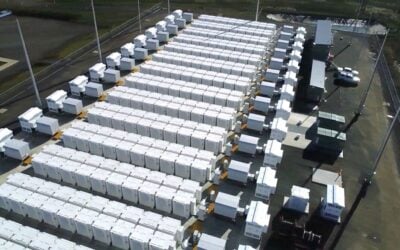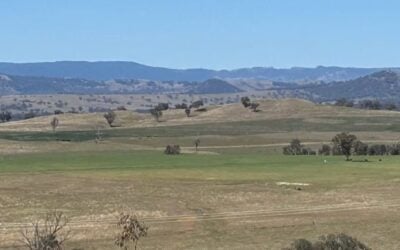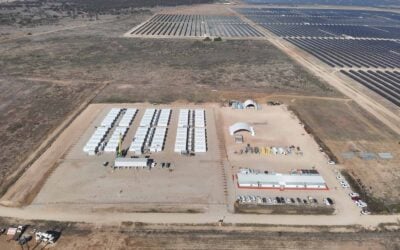Tesla’s CEO Elon Musk, pictured in 2013. Image: wikimedia user: corevette.
The head of an Australian solar installer has criticised Tesla’s marketing of its residential energy storage devices, claiming that potential end customers have been given unrealistically low expectations on the system’s pricing.
Nigel Morris, chief of Roofjuice, the relaunched Australian arm of residential installer Sungevity, gave two recent interviews to Energy Storage News and sister site PV Tech on battery storage and rooftop PV respectively. Morris, who has been in solar for around 20 years, discussed a wide range of topics around the economics of selling storage in the country, including lobbying by pro-fossil fuel groups to suppress the rise of the technology.
The Roofjuice chief exec also said customers had been “confused and disgruntled” that Tesla’s launch in April last year left them believing Powerwalls could be theirs for around US$3,000, the price quoted by Tesla CEO Elon Musk at the time.
“Not a day goes by without someone calling up wanting one of these US$3,000 systems, but the trouble is that these batteries are in the market at closer to 12,000-14,000 dollars retail. At the moment, this requires a massive consumer education campaign and selling storage is complex,” Morris said, adding that he felt consumer confidence had suffered from this misunderstanding.
Enjoy 12 months of exclusive analysis
- Regular insight and analysis of the industry’s biggest developments
- In-depth interviews with the industry’s leading figures
- Annual digital subscription to the PV Tech Power journal
- Discounts on Solar Media’s portfolio of events, in-person and virtual
Analyst’s reactions
The “confusion” referred to by Nigel Morris appears to have arisen from the fact that, as analysis firm Lux Research explained to this site at the time of the launch, the price quoted is for the battery pack itself and does not include inverter, installation and other components and soft costs. To put it another way, the total installed price buys the customer more than just a battery – it more often than not also includes the price of the PV system as well, for example.
In the days after the launch, Lux’s Dean Frankel and others nonetheless hailed Tesla’s acheivement in getting the pack price down to that level – Bloomberg New Energy Finance analyst Logan Goldie-Scot said it was a “remarkably low price”.
This time around, Energy Storage News asked three analysis firms, including Lux, to offer their take.
Marianne Boust, principal analyst at IHS said that “both prices are correct” – the US$3,000 and the higher sum quoted by Morris and broke down the cost into its constituent parts:
“Tesla’s Powerwall includes the battery and management systems, but not the inverter and installation costs. The US$3,000 price tag refers only to the battery module. On top of that you need to add the inverter and balance of plant, which IHS estimates at US$1,000-US$1,500 per kW for the Australian market. As the Powerwall is rated at 3.5kW, it would give additional costs of US$3,500-US$5,200. Then you need to factor installation costs and the retailer margin, which would put the price at above US$10,000.”
GTM Research’s Brett Simon, who recently authored a report on the Australian market, said that as a relatively new technology in the eyes of a majority of potential customers, there still needed to be more effort made by the industry as a whole to ensure “clarity”.
“Customer education is a key area in the storage space right now, particularly as residential energy storage is a nascent market. Clarity is important when companies announce pricing, specifically, what the price entails: retail versus wholesale, whether power electronics are included, whether solar panels are included, and so on. Customer education is also key for showing how the system can provide benefits to the end customer. Certainly this is an area that will improve as energy storage systems become more common.”
Lux’s Dean Frankel reiterated that Tesla has managed a much lower price than its competitors to date, but perhaps also went furthest towards supporting Nigel Morris’ words in terms of criticising the marketing campaign’s perceived ambiguity, calling it a “miscommunication”.
“What I would stress here is that the issue for consumers is that this [energy storage] is not the simplest thing in the world to market,” said Frankel. “It’s still cheaper than some of the other options. [However], there is definitely some blame I think on Tesla… they could’ve done a better job , [perhaps] give an FAQ [page] on their site about what situations you would need additional hardware and how it may change the costs.
“Instead they caught headlines with the US$3,000 price point. And that price point is impressive, but at the same time if needs to be clarified what is and isn’t provided.
“To a certain extent they are not being totally forthcoming in terms of what their cost represents but it’s also a different part of the value chain. So I think there’s certainly a miscommunication between Tesla and the end consumer as to the true cost of the system, and that’s something we’ve been talking about from the beginning.”
Frankel also stated that he believed it was likely there was a distinct difference between an initial telephone sales enquiry from a curious consumer who had seen the launch covered in mainstream media reporting and someone with an advanced interest in making an actual purchase.
Australia now has more than 1.5 million solar rooftops. Image: SunPower.
Tesla responds
When approached by Energy Storage News, Tesla declined to go on the record in direct response to the claims, but a spokesperson instead offered an explanatory statement on its strategy in Australia.
“Tesla Powerwall has been very well received in Australia. There is a great understanding and desire for control of energy consumption with Australians, as well as a market with increasing electricity costs, high concentration of existing residential solar and lot of sunshine,” the statement read.
“Tesla Energy works with key organisations across three main channels including electricity retailers, solar installers and the network providers to bring Tesla Powerwall to market. The electricity retailers and solar installers that Tesla works with were chosen for their ability to provide a great customer experience and their service and reach across Australia.
“These resellers have launched in market, taking orders for new install packages with pricing ranging between AUS$14,000 (US$10,000) – AUS$18,000, which includes solar panels, an inverter and the Tesla Powerwall.”
Finally, the company quoted a member of the Pfitzner family from Sydney, the first household in Australia to receive a Powerwall. As well as describing the circumstances of his family’s home, Pfitzner praised the knowledge and professionalism of his chosen installer – and therefore Tesla’s selected channel partner.
“We have what you’d consider a large home for this part of Sydney, with four bedrooms, a study, double garage, and ducted air conditioner. Throw in a pool to operate and the temperatures out this way, and we are at the higher end of electricity consumption.
“I first logged my interest with Natural Solar in December of 2015, and Oliver returned my call. I could tell right away that this wasn’t a sales pitch – these guys knew what they were doing from the front office right through.
“When Oliver sent me through the quote for the system and I saw his qualifications in engineering I knew I’d made the right decision. Every step of the way since, they’ve been open, honest and always taken the time to explain things or just have a chat about where the industry is going – and the excitement around Tesla Powerwall in particular.
From an industry point of view, Energy Storage News must state that it has heard almost unanimous praise for Tesla, even from rival manufacturers, for having raised awareness of energy storage in the mainstream, as well as for exerting pressure on suppliers and the advanced battery industry as a whole to ramp up its cost reduction efforts.
Last week Energy Storage News ran a blog post from Apricum – The Cleantech Advisory setting out a new methodology for accurately calculating and comparing the true costs of energy storage in different applications. To read the piece in full, click here.






